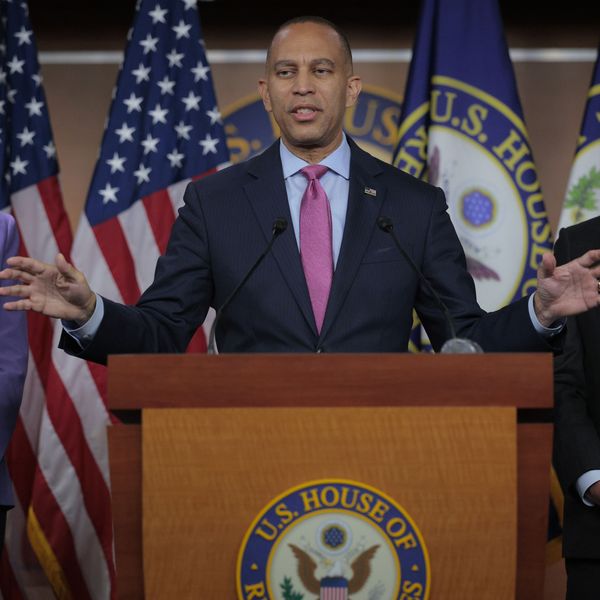The nation's top military officer told a House subcommittee Wednesday that U.S. troops could potentially hit the ground in Syria to fight Islamic militants, offering another sign the operation is headed towards expansion.
Speaking to the House Appropriations Committee's defense subcommittee, Chairman of the Joint Chiefs of Staff Gen. Martin Dempsey said, "If the commander on the ground approaches either me or the secretary of defense and believes that the introduction of special operations forces to accompany Iraqis or the new Syrian forces, or JTACS (joint tactical-air controllers), these skilled folks who can call in close-air support, if we believe that's necessary to achieve our objectives, we will make that recommendation."
Dempsey's comment was played down by Air Force Col. Ed Thomas, a spokesman for the Joint Staff, who stressed that the comment was in response to a "hypothetical" situation, and that U.S. troops would be there only for troop rescue operations, the Military Times reports. An anonymous defense official made the same point to Agence-France Presse.
AFP adds that the official said Dempsey was addressing "flexibility and preservation of options."
Despite the downplay of the ground troop scenario, U.S. Secretary of State John Kerry last week also indicated the door was open for ground troops in Syria in the context of the the proposed authorization for the use of military force (AUMF).
In his comments to the Senate Appropriations Committee, Kerry highlighted the vagueness of the "enduring offensive ground combat operations" language in the AUMF. As Common Dreams reported last week:
"If you're going in for weeks and weeks of combat, that's enduring," he said. "If you're going in to assist somebody and fire control and you're embedded in an overnight deal, or you're in a rescue operation or whatever, that is not enduring."
According to Kerry, the White House believes that the language "left the president the appropriate level of discretion with respect to how he might need to do, without [any] room for interpretation that this was somehow being interpreted to be a new license for a new Afghanistan or a new Iraq."
Kerry's statements follow remarks by White House Press Secretary Joshua Earnest, made immediately following the mid-February release of the proposal, that the AUMF's language was intentionally vague because "we believe it's important that there aren't overly burdensome constraints that are placed on the commander in chief."
Though, as Politico reports, the proposed AUMF "appears to have pleased nobody on Capitol Hill," and while it has yet to face a vote, thousands of troops have already been deployed to Iraq, and U.S. and coalition forces are continuing a months-long campaign of airstrikes in Iraq and Syria.


